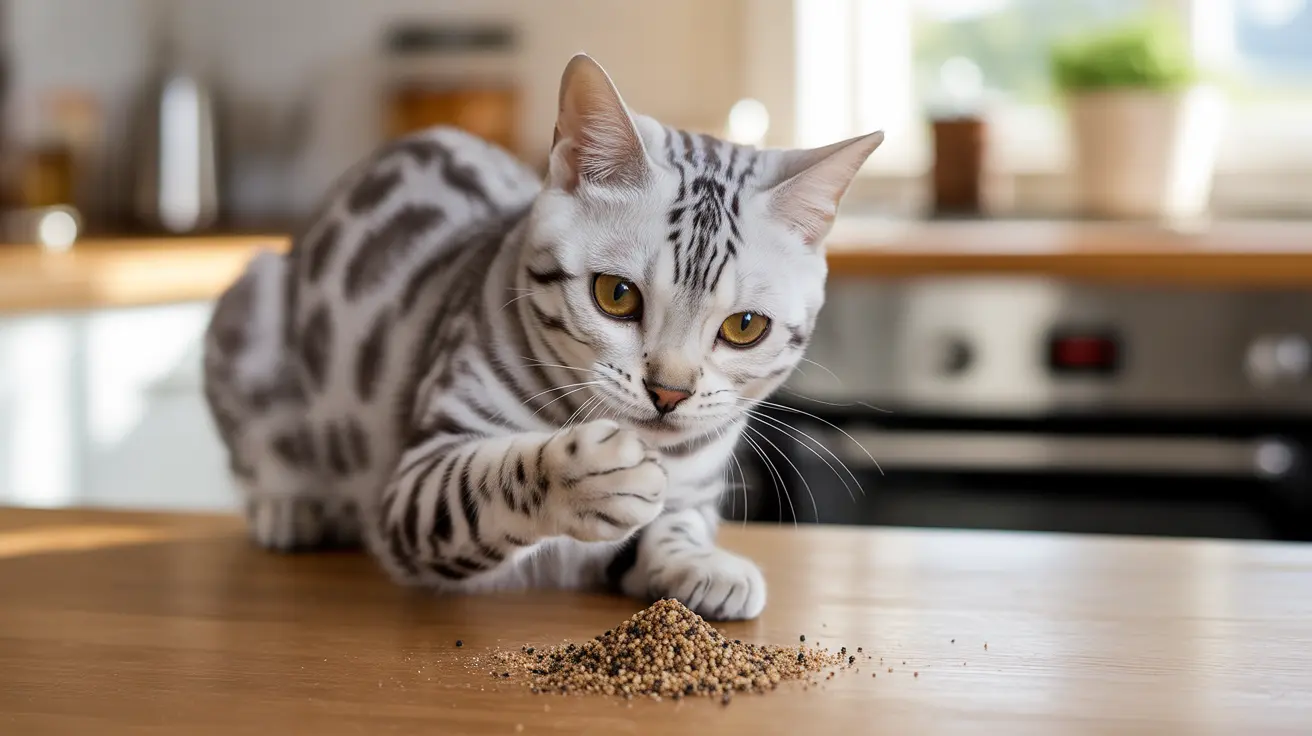Cat owners and garden enthusiasts often wonder about the relationship between cats and black pepper. Understanding how cats react to this common household spice is crucial for both pet safety and effective deterrent strategies. Let's explore the science behind cats' reactions to black pepper and what you need to know to keep your feline friends safe.
Black pepper, while a staple in human cuisine, can have significant effects on cats due to their heightened sensory perception and unique physiology. With over 200 million scent receptors in their noses, cats experience this spice very differently than humans do.
The Science Behind Cats and Black Pepper
Cats have an extraordinarily sensitive sense of smell that makes them particularly reactive to strong odors like black pepper. The compound piperine, responsible for pepper's distinctive smell and taste, can be overwhelming for felines. Most cats naturally avoid areas where black pepper is present, demonstrating clear signs of discomfort when encountering it.
When cats come into contact with black pepper, they may exhibit various behaviors such as:
- Sneezing and coughing
- Backing away quickly
- Pawing at their nose or face
- Excessive drooling
- Trying to leave the area immediately
Health Risks of Black Pepper for Cats
While black pepper isn't typically toxic to cats in small amounts, it can cause several concerning health issues when cats are exposed to larger quantities or when exposure is prolonged.
Respiratory Concerns
When cats inhale black pepper, it can irritate their respiratory system, leading to:
- Difficulty breathing
- Persistent coughing
- Nasal discharge
- Respiratory distress
Digestive Issues
If a cat ingests black pepper, they might experience:
- Stomach upset
- Vomiting
- Diarrhea
- Loss of appetite
Safe Alternatives for Cat Deterrence
Instead of using black pepper to keep cats away from certain areas, consider these safer alternatives:
Natural Deterrents
- Citrus peels
- Coffee grounds
- Plant-based solutions like lavender or rosemary
- Motion-activated sprinklers
Physical Barriers
- Garden fencing
- Protective netting
- Pebble or stone ground cover
- Commercial cat deterrent products
When Black Pepper Exposure Occurs
If your cat has been exposed to black pepper, take these immediate steps:
- Remove the cat from the area containing pepper
- Clean any pepper from their fur or paws
- Monitor for adverse reactions
- Contact your veterinarian if symptoms persist or worsen
Frequently Asked Questions
Do cats like or dislike the smell of black pepper, and why?
Cats strongly dislike the smell of black pepper due to their sensitive olfactory system. The pungent compound piperine in black pepper is particularly offensive to their heightened sense of smell, causing them to avoid areas where it's present.
Is black pepper safe for cats to inhale or ingest, and what health risks does it pose?
Black pepper is not safe for cats to inhale or ingest. While small accidental exposure isn't typically toxic, it can cause respiratory irritation, digestive issues, and discomfort. Larger quantities or prolonged exposure may lead to more serious health problems.
Can black pepper effectively keep cats away from certain areas, and how should it be used?
While black pepper can deter cats, it's not recommended as a deterrent due to potential health risks. There are many safer and more humane alternatives available for keeping cats away from specific areas.
What are safer and more humane alternatives to black pepper for deterring cats?
Safer alternatives include citrus peels, coffee grounds, commercial cat deterrents, motion-activated sprinklers, and physical barriers. Plant-based solutions like lavender or rosemary can also be effective while being less harmful to cats.
What symptoms should I watch for if my cat accidentally comes into contact with black pepper?
Watch for symptoms such as sneezing, coughing, excessive drooling, pawing at the face, vomiting, diarrhea, or respiratory distress. If these symptoms persist or worsen, consult your veterinarian immediately.
Remember, while black pepper may seem like a quick solution for keeping cats away, the potential risks to feline health make it an unsuitable choice. Always opt for safer, more humane deterrent methods to protect both your space and the wellbeing of any cats in the area.






